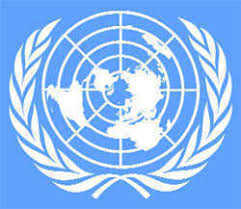MEA briefs P-5 diplomats
Sandeep Dikshit
Tribune News Service
New Delhi, August 5
The Ministry of External Affairs (MEA) wasted no time in its outreach to the capital’s diplomatic corps on the proposed legislative changes regarding the status of Jammu & Kashmir, which it emphasised were purely an internal matter and had nothing to do with the dispute with Pakistan on its status.
India briefed the envoys of five permanent members (P-5) of the UN Security Council — the US, Britain, France, China and Russia — on its decision to scrap Article 370. The MEA embarked on formal and informal briefing after queries from anxious envoys poured in at South Block after the government tightened the security cordon in J&K and curtailed civil rights.
Meanwhile, Pakistan Foreign Secretary Sohail Mehmood summoned Indian High Commissioner in Islamabad to deliver a “strong demarche” on the announcements made and actions taken by the Government of India with regard to Jammu and Kashmir today.
Mehmood called upon India to halt and reverse its actions, ensure full compliance with UN Security Council resolutions, and refrain from any further action that could entail serious implications.
Sources said busy with legislative business in Parliament, External Affairs Minister S Jaishankar adopted a hands-on approach in guiding senior MEA officials on transmitting the government’s line that the proposals related to Article 370 and administrative reorganisation of J&K introduced in Parliament had no political motives. These were aimed at providing good governance, promoting social justice and ensuring economic development in Jammu and Kashmir.
The move will help neutralise Pakistan’s threat to “exercise all possible options” to counter the “illegal steps”. Pakistan had invoked the relevant UN Security Council (UNSC) resolutions to assert that “no unilateral step by the Government of India can change this disputed status”.
Pakistan received little comfort from the OIC which stuck to its position of expressing concern about the deteriorating situation in the “Indian-occupied J&K” and the use of banned cluster munition by the Indian forces to target civilians (since refuted by the Indian Army). At Islamabad’s urging, the OIC also asked the international community to press for the “peaceful resolution” of J & K dispute through the “democratic method of a free and impartial plebiscite” in accordance with relevant United Nations Security Council resolutions.
In fact, sources pointed out that this OIC statement at a time when J&K’s status was poised for a change was a watered down version of its observations in the final communiqué of the recent OIC summit in Mecca when there was no such move on the horizon.
At that time, it had called for a United Nations commission of inquiry to investigate the alleged human rights violations in Kashmir and asked India to allow this proposed commission and international human rights organisations to access India-occupied Kashmir.










